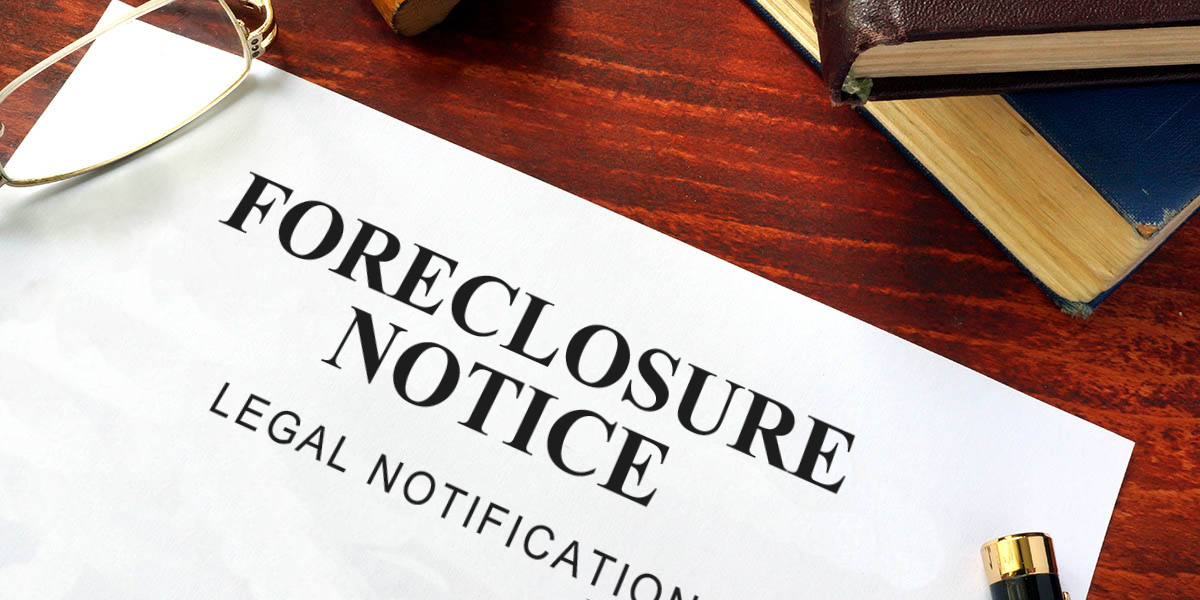Buying Foreclosure Properties
My borrower clients often ask me about buying Foreclosure Properties. This is a topic I love. And people who know me, know that if you get me started on this subject, I can talk for hours about it. I have purchased countless properties in various phases of foreclosure over the last 20 years. Each one of them has a unique story and taught me important lessons along the way.
Before I can advise my people, I need to know more about what they really want to do. And most of the time, they need more education on the subject of Foreclosure Properties in order to know what they really want to do. The term “Foreclosure Properties” can mean many things to different people. I start by providing some education and insight about the subject so that my buyers can form realistic expectations.
Use these handy links to jump to a specific topic on buying foreclosure properties.

Notice of Default
Once the lender has exhausted all possible communication efforts with the borrower and if no resolution has come about, the lender will file a Notice of Default (NOD). The lender hires a third-party service called a Trustee to generate and mail the NOD paperwork to the borrower via certified mail and record that same paperwork at the County Recorders Office in the county where the property is located. The NOD gives formal notice to the borrower, any other lien holders, and the whole world that the property is officially in default and unless the loan is brought current or paid off, the property will be sold at auction. The NOD period lasts 90 days from the date it was filed. During this NOD period, the borrower may sell the property, payoff the lender, or bring the loan current. The lender cannot auction the property during the NOD period. The NOD period is designed to allow the borrower time to remedy the situation in some way and avoid the foreclosure auction.
At the expiration of the NOD period the lender has the right to file the Notice of Trustees Sale (NTS) and send the property to auction. The foreclosure auction is called the Trustee Sale. Once again, the lender instructs the Trustee to prepare the NTS paperwork, and mail it via certified mail to the borrower and file it with the County Recorders Office in the county where the property is located. The NTS serves as public notification of the date, time and location that the property will go to auction. The minimum NTS time period is 21 days. This means that the auction date must be set at least 21 days from the time the NTS is filed. During this period, the borrower may bring the loan current, sell the property or pay off the lender and cancel the Trustee Sale. The NTS period is designed to give the Borrower one last time period to resolve the situation prior to the auction.
During the NOD and NTS periods, the borrower can file bankruptcy or file a lawsuit against the lender. However, these are not usually permanent solutions to the foreclosure and they do not result in the cancellation of the foreclosure but rather delay the process by a few weeks or months until the court allows the Lender to continue with the foreclosure process.
Foreclose Property Auction

If no one purchases the property at the Trustee Sale, the ownership of the property is assigned to the lender and the lender will likely sell the property on the open market within a few months of the auction. Lenders will typically hire a local Realtor to list and market the property for sale on the local Multiple Listing Service (MLS). These properties are often called Bank Owned or REO properties.
On the day of the auction there are a few things that can happen. One possibility is the sale can be postponed for various reasons, usually by a week or a month. Another possibility, is the property can open for bidding and go to auction as planned and sell the to the highest bidder. The third and final possible outcome is that the property can open for bidding and no one bids and therefore the property is sold back to the lender.
In order to purchase a property at the Trustee’s Sale, the potential bidder must first show proof of funds to the Trustee. This means that the potential bidder must have cashiers checks in the amount of the opening bid (and more) on hand, at the time of the sale in advance of the auction. The buyer does not have the chance to win the bid at auction and then go out and obtain financing to purchase the property. The sale is final on the spot and once the gavel slams down with the word “Sold!” the winning bidder gives the cashiers checks to the Trustee and there is no turning back. This also means that it is an “as-is” sale. There is no time for the buyer to check the condition of the property or to ask the seller to make repairs. It is not that type of transaction. The vast majority of the properties sold at Trustee Sale are sold without the buyer ever seeing the inside of the property. There is also a great deal of risk associated with the chain of title on the property.
This is a topic for a different article but the important thing to know is that it requires some experience and expertise in order to avoid bidding on a property with liens and/or legal issues that can negatively affect the buyer’s ownership. If the buyer must obtain financing to purchase a property, then buying at the foreclosure auction is not usually possible.
Can Financing happen after a Foreclosure-Auction Winning Bid?
On very rare occasions, the Trustee will hold a foreclosure-auction-like event wherein a buyer may win the bid on a property and then have time to obtain financing and even inspect the property before closing. This is the exception and not the norm. Be aware that in these types of auctions, there is usually bidder fee paid to the auction company that the buyer will pay in addition to the winning bid amount. And the lender/seller may have a minimum reserve amount that must be met in order for the sale to be valid.
Buying Foreclosure Property at the Trustee Sale tends to be reserved for the professional investor-buyer and it is rare that I see a one-time homeowner-buyer able to target a particular property and purchase it at auction and be satisfied with the process.
Every so often I have a buyer who is purchasing a property directly from the owner-in-foreclosure prior to the property going to sale at auction. This can be a good transaction for all involved but it occurs very rarely. The buyer may obtain financing during the purchase of the property and have a normal inspection period. There are however, specific laws that involve purchasing a property in foreclosure. The transaction will require some legal disclosures and right-of-recision time periods that must be respected and acknowledged by all parties. The parties will want to involve an experienced Realtor to keep everyone within the law.
Once a property has gone to Trustee’s Sale and no one bids on it, ownership of the property goes to the lender and it becomes a Bank Owned or REO property. Lenders are not in the business of owning real estate and they do not want to keep real estate on their books. So they will seek to liquidate the property as soon as possible. Things move slowly for Lenders and, “as soon as possible” can turn into many months. The lender will eventually make the property vacant, secure and list the property with a local realtor. In some rare instances, the lender will put some money toward fixing the property up before listing it, but most often, the property is listed in its as-is condition. The lender will not typically pay for many buyer-requested repairs.
Buyers of REO properties may obtain financing for the purchase, but they need to be aware that the condition of the property may prevent it. This is not an issue when the property is in fair to good condition. But when the property is run down and in disrepair, the property may not qualify for financing in its current condition and the seller (the Lender) will not likely be willing to make the required repairs. This will make it impossible for the buyer to obtain financing to purchase the property. For this reason, REO properties in poor condition with seller’s unwilling to make repairs will often be sold to cash buyers.

How Long can a Short Sale take?
When I have a Borrower interested in buying a Short Sale, I caution them that the transaction can take many months to close escrow and may never close escrow. And the buyer has very little say and control over the timeline. I have been the buyer on many short sales that have taken between six and fourteen months to close escrow. I have been the buyer on many more short sales that failed to close ever, all because the lender eventually denied the short sale.
The buyer can obtain financing when buying a short sale and will have an inspection period. But the uncertain timeline can make it very difficult for the buyer to make moving plans, know which school to enroll children in, time the sale of their existing property if they currently own, handle lease negotiators with their landlord if they are currently renting, time the interest rate market, and so on. Also, the buyer should not expect the seller to make many repairs to the property as they otherwise would in a normal sale because typically the Short Sale seller is strapped for cash or they wouldn’t be doing the short sale in the first place.
After becoming more educated about the buying Foreclosure Properties, my borrowers will usually form a plan that suits them with regard to buying Foreclosure Properties. Even if that plan is to avoid them altogether. Something I always remind them is that if they come across a good deal in foreclosure or not, and they want to purchase the property but it will not qualify for financing, the best thing to do is call me about it. Never let the lack of funding get in the way of making a good deal on something. There are always funds available if the deal is a good one. Many times the solution will involve buying the property using a quick private loan and then refinance into long-term financing after the purchase.